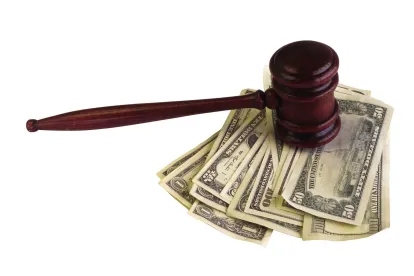On June 5, 2017 the Supreme Court dealt a significant setback to the Securities and Exchange Commission (“SEC”) by limiting its power to extract ill-gotten profits from securities laws violators. Ruling 9-0 in Kokesh v. S.E.C., No. 16– 529, — S. Ct. — (June 5, 2017), the Court held that in SEC enforcement actions, “disgorgement” – a form of restitution in which a defendant must pay back wrongful gains – is subject to a five-year statute of limitations.
In 2009, the SEC initiated an enforcement action against Charles Kokesh, the owner of two investment-advisory firms, seeking an injunction, monetary penalties, and disgorgement of profits. A jury found that from 1996 to 2006, Kokesh misappropriated funds from business development companies. The district court determined that 28 U.S.C. § 2462’s five-year statute of limitations applied to the civil monetary penalties sought, but not to the $34.9 million disgorgement judgment. The court held that disgorgement is not a “penalty” within the meaning of 28 U.S.C. § 2462 – which applies to the enforcement of any “civil fine, penalty, or forfeiture.” The Tenth Circuit affirmed.
The Supreme Court reversed this decision, holding that disgorgement is a penalty within the meaning of 28 U.S.C. § 2462 and therefore is subject to the statute’s five-year statute of limitations. The Court found that SEC disgorgement “bears all the hallmarks of penalty: It is imposed as a consequence of violating a public law and is intended to deter, not to compensate.” The Court focused on the fact that SEC disgorgement is imposed for punitive purposes, i.e., to deprive the defendant of profits as a means of deterring future violations. Indeed, a defendant is often required to pay back more than was received as a result of the wrongdoing. Further, SEC disgorgement money is not always used to compensate the victims. How profits will be paid out is completely within the district court’s discretion, and thus can be dispersed to the victims or to the United States Treasury. For these reasons, the Court determined that SEC disgorgement is a “penalty” and held that the five-year statute of limitation set out in 28 U.S.C. § 2462 applies.
This ruling is a blow to the SEC, and represents a recent trend given the High Court’s 2013 decision in Gabelli v. S.E.C., 133 S. Ct. 1216 (2013), in which the Court found that 28 U.S.C. § 2462’s five-year statute of limitations applied to civil monetary penalties. Collectively, Gabelli and Kokesh likely will force the SEC to move more swiftly in its investigations. Before these rulings, the SEC often took its time in investigating securities violations, especially those arising from more complicated schemes. Firms can expect to see an increased push by the SEC to secure tolling agreements in cases that may run into statute of limitations issues.



 />i
/>i

